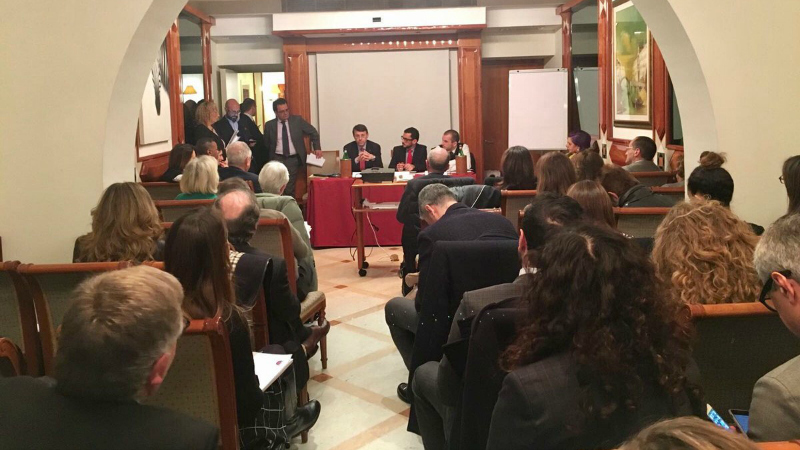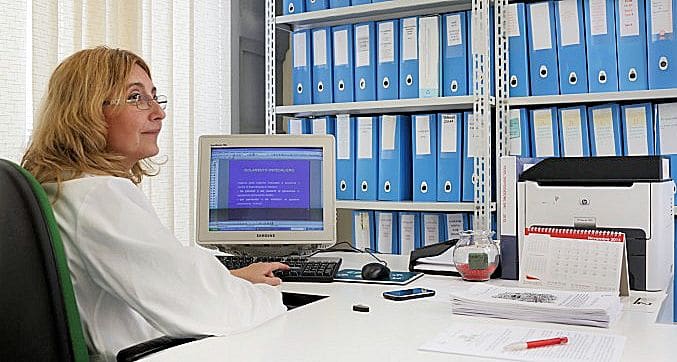One in three doctors has little time for patients. One doctor out of 10 changes his drug if the ASL tells him so
Presentata l’Indagine civica sull’esperienza dei medici in tema di aderenza alle terapie, con focus su farmaci biologici e biosimilari”. A minare l’aderenza alle terapie anche la carenza di tempo da dedicare al rapporto medico-paziente e il rispetto di vincoli economici fissati a livello centrale e regionale.

Among the prescribers of biological and biosimilar drugs, those who decide to change the patient's therapy do so, in a third of cases, in freedom and autonomy and to better respond to the patient's needs for treatment and the success of therapies; but almost one in five (19%) declares that they have changed their therapy to meet administrative needs, mainly to contribute to the economic sustainability of the NHS (39%), to respect budget limits or objectives set by the hospital or local health authority (35%) , but only the 8% of professionals is aware of the existence of resolutions by the Region or Asl which foresee how the savings deriving from the prescription of cheaper drugs will be reused.
23 Febbraio 2017 – CITTADINANZaTTIVA
Research, one doctor out of 10 often changes medication if the ASL so says
One in ten doctors often change the drug prescribed to the patient under pressure from the ASL, which wants the cheaper alternative to be favoured. This is what emerges from the survey on therapeutic adherence conducted by Cittadinanzattiva and presented in recent days in Rome. Based on the answers provided by a sample of about 800 doctors, a quarter of whom are generalists or paediatricians of free choice, the research has ranked the factors that most affect the replacement of a drug or therapy in the doctor's pen. One out of three prescribers, for example, claims to change medication every time the patient shows poor tolerance to the product of first choice; more than one out of three says they replace "often" on the basis of indications or guidelines from the scientific world; and more than one in five "always" change when the first therapy proves ineffective.
But the champion's doctors admit to changing treatments also for administrative reasons. For example, nearly one in 20 doctors say they "always" replace their medication if they are prone to deficiencies, while one in ten say they do so "frequently." The changes in therapy induced by the general management of the ASL are also far from rare, for purely economic reasons: he declares that one in ten doctors changes "frequently" and "sometimes" one in three. Two rates that do not make the national secretary of Fimmg, Silvestro Scotti happy. «Since I am president of the Medical Association of Naples» he comments to Filodiretto «if I read these data wearing such clothes, I would immediately summon all these doctors before the disciplinary council, because a therapy is changed for clinical reasons, not on the intervention of the Asl. It is true that our code of ethics speaks of the sustainability of treatments, but the patient's interest comes first: a drug is replaced when it is not tolerated, not because it is convenient for the Healthcare Company. Even if, I must say, I have some doubts about the figures that emerge from the research».
Having acknowledged the doubts, the impression still remains that by now the doctor's pen is forced to live with the pressures of the ASL even more than with the substitutability in the pharmacy. «I am concerned about all the factors that somehow rewrite what comes out of the prescriber's pen» is Scotti's reply «in the case of substitutability it is a problem of interpretation of the rules: for me the substitution can only take place with the naive patient and nothing else, even if I admit that in certain circumstances difficulties may arise in the distribution circuit. As far as external pressures are concerned, we are faced with a phenomenon that puts family doctors and pharmacies on the same side: as long as the generalist works "far" from the ASL, that is, he will be able to remain independent of all the algorithms of the generals who try to tell him what to prescribe and who to prescribe it to, then he will need a pharmacy that is just as “far” from the healthcare company. If, on the other hand, the GP ends up becoming an "employee" of the system, then hospitals, districts or even vending machines will be able to dispense the drugs".
